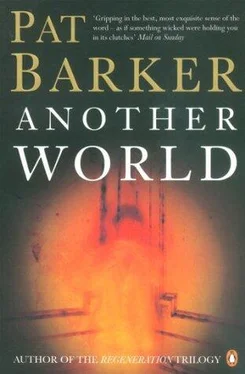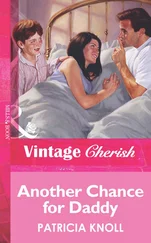The groin is hairless, infantile. He doesn’t seem to mind, but perhaps he does, it’s difficult to tell.
‘That bloody grub’s on its way through,’ he says.
‘Do you want the bedpan?’ Nick looks around for the bell.
‘No, I bloody don’t, I’ve had enough of that. How can anybody shit lying on their back?’
‘You’re not on your back.’
‘Good as. I’ll go to the toilet.’
He looks daunted, though, even as he says it. For so many years now there’s been something almost miraculous about his body, the erect carriage — he has no arthritis — none — the eyes that still see, perfectly, the ears that still hear, perfectly — all this combined with an almost transparent thinness, a lightness, as if the next puff of wind would blow him away. He has seemed to be as fragile and indestructible as thistledown.
They make the journey to the bathroom in slow stages. So much effort to get to the side of the bed, so much to push the red, shiny, scaly legs and feet into the slippers which Nick places ready for him. Then a rest before the slow shuffle along the ward, Nick at his rear bunching up the smock behind him like a bridesmaid holding up the bride’s train, concealing Grandad’s lean and pleated arse from the gaze of passing nancies. Ian in particular, though Ian rubs surgical spirit into it twice a day and hasn’t been carried away by passion yet.
At last they make it to the loo. A cool gush of water from the next cubicle as Nick lowers Geordie on to the seat and retreats a few tactful steps to the standups, where he pees and then stares at himself in the mirror, listening to the grunts of effort and pain from the cubicle behind him.
Another mirror, this time belonging to Grandad, a looking-glass made of steel, a hole punched through one end with a length of khaki ribbon threaded through. It hung on a hook in the corner of the bathroom where he kept his shaving things. Whenever Nick asked, Geordie took it down and let him look into it, but the reflection that peered back at him was blurry, swollen, distorted by the irregularities in the metal, never the clear reflection you got in glass. Only it didn’t break. Grandad dropped it on the floor once, to show that it didn’t break.
The mirror had gone with him through France, but it couldn’t have been sentiment that bound him to it, for he avoided everything else to do with the war. Never spoke of it. Would walk a mile out of his way to avoid passing the war memorial. And yet every morning of his life he shaved using that mirror, the same he’d propped up against sandbags in France, had brought back across the Channel when he was wounded and taken out with him again. He would watch Nick looking at himself. ‘It’s funny, Grandad,’ Nick would say, pulling faces to distort his reflection still further. Geordie said nothing, just waited patiently, and then when Nick had finished hung the mirror back on the hook.
He said very little. With Nick’s father he was deferential in that curiously English way, though Nick sensed that beneath the surface respect there was a certain degree of contempt. ‘A man among boys, a boy among men.’ Whether Geordie knew the phrase or not, that had been his verdict. Though at the same time he was pleased that his Mollie, by marrying a schoolmaster, had taken several crucial steps up in the world. He was careful to mind his p’s and q’s whenever his son-in-law was around. Literally. He was uncomfortable with his own way of speaking, the local accent, the stammer, his inability to articulate. The stammer was bad in those years. There were times when he seemed to be hoiking up words like phlegm, raking them out of his gut.
But the silence went deeper than that. His body, stripped off in the garden — the wound in his side — suggested questions. Why? How? What happened? Nick would ask, but there were no answers. The past was hidden, veiled in silence, like his grandfather’s head behind its screen of cigarette smoke.
‘You know it’s cancer?’
‘Yes. Dr Morton told me.’
Neil Shepherd’s in his early fifties. His face is grey in the grey light falling through the tall windows to the right of his desk. The growling and gurgling from the pipes that run along the wall behind him suggest ominous possibilities, but not as ominous as the state of Geordie’s intestines.
‘I’m afraid it’s spread beyond the stomach. It wouldn’t be operable even in a much younger man. I’m sorry.’
‘Yes,’ Nick says. ‘That’s more or less what I expected.’
A pause. ‘How would you describe his state of mind?’
‘Seems fairly cheerful.’
‘Clear, mentally?’
‘Why do you ask?’
‘He said something the other day that seemed to imply he thought the pain was coming from his bayonet wound.’
‘He’s said that to me too.’
‘But he must know it isn’t true.’
Nick hesitates. ‘When he came back from the war they had a memorial service for his brother, who was killed. And as they were leaving the church his mother, my great-grandmother, turned to him and said, “It should have been you.”’ He sees Shepherd wince. ‘I think he needs to believe it’s the bayonet wound that’s killing him. I don’t pretend to understand it, but I don’t think it’s just confusion or ignorance. He wants to believe it.’
‘Even after all this time?’
Nick pulls a face. ‘He seems to be getting closer to it, if anything. The nightmares are back.’
‘Yes, he’s very restless at night. Are you sure Mrs — I’m sorry, I’ve forgotten her name.’
‘Mrs Wilson. His daughter. My aunt.’
‘Do you think she can cope?’
‘Well, she won’t be coping on her own. I don’t think there’s any question of putting him in a home.’ He pauses. ‘How long do —’
Shepherd’s already shaking his head. ‘It really is impossible to say.’
‘Educated guess?’
Another shake of the head. ‘A few months, at most. Frankly, he could go any time.’
Well, yes, Nick thinks, going back to the ward, but at the age of 101 that’s true even without the cancer.
Auntie Frieda’s by the bed when he gets back, sitting in the plastic chair, nursing her handbag as if she suspects somebody of planning to steal it, and running her tongue round the front of her dentures as if she thinks they might have a crack at those as well. She looks disgruntled and virtuous and mildly critical, darting fierce little assessing glances round the ward.
Nick bends down and kisses her cheek, feeling how much more loosely the skin hangs from the bone than it did even a week ago. She should be resting, trying to get her strength back after the last two months of virtually round-the-clock care. Shepherd’s right. She can’t possibly cope on her own. ‘How are you?’
‘Oh, not so bad.’
Her eyes are red-rimmed, from crying perhaps. She nods at the bed curtains. ‘I was just saying to your grandad, I don’t dislike that shade of beige.’
Nick turns aside to hide his amusement. Auntie Frieda’s enthusiasms are always couched in these negative terms: ‘I wouldn’t mind…’ ‘I don’t dislike…’ ‘I can’t say I object…’ He sometimes wonders whether her marriage remained childless because Uncle Wilf never felt sufficiently encouraged to persevere.
Grandad’s back on the bed, scaly red shins peeping from below the hem of the smock.
‘I’m dying for a fag,’ he says, unconsciously echoing the government’s latest anti-smoking campaign. ‘It’s bloody torture, this is.’ He sets up a great grumble about the hospital’s no-smoking policy, designed, Nick suspects, to deter him from too great frankness about whatever the doctor might have said. His clever grandson’s talked to the doctor and sorted things out and he doesn’t want to know about it, thank you very much — that seems to be the message.
Читать дальше












